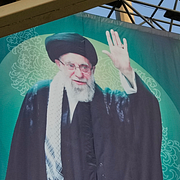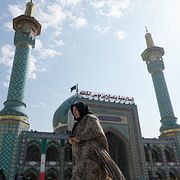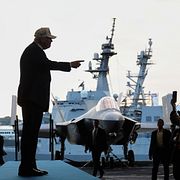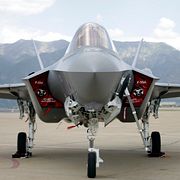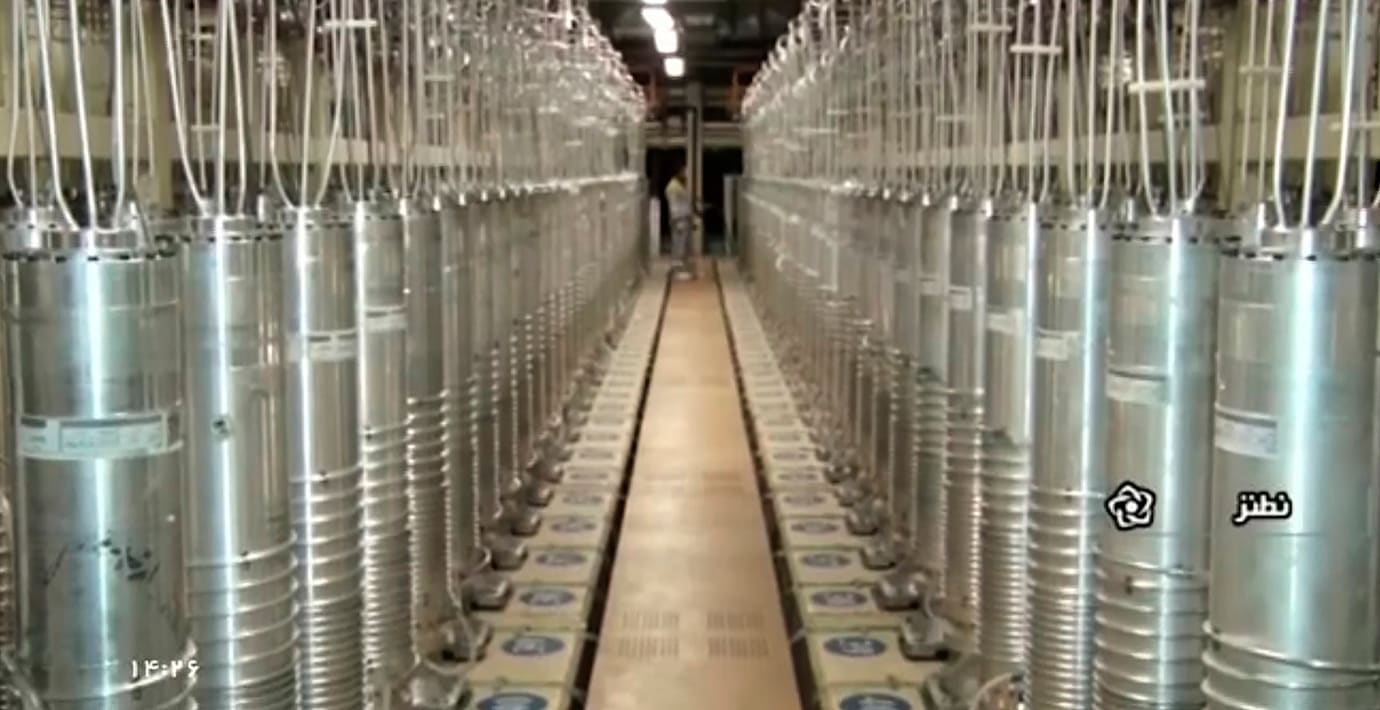
Iran: Förhandlingar med USA är en återvändsgränd
Förhandlingar med USA är en återvändsgränd, säger Irans högste ledare ayatolla Ali Khamenei i ett förinspelat meddelande. Det rapporterar Reuters.
Iran har, bland annat av EU, uppmanats att återuppta samtalen om sitt kärnenergiprogram med USA. Khamenei säger nu att man inte kommer att ”vika sig för påtryckningar”, samtidigt som han upprepar sitt tidigare budskap: att Iran har rätt att anrika uran, men inte har några planer på att utveckla kärnvapen.
Enligt AP innebär uttalandet troligen att president Masoud Pezeshkian inte kommer att försöka diskutera frågan med amerikanska motparter under det pågående mötet i FN:s generalförsamling i New York.
De europeiska sanktionerna mot Iran väntas åter träda i kraft på söndagen.
bakgrund
Tidigare förhandlingar avbröts när Israel attackerade Iran i juni
Wikipedia (en)
On April 12, 2025, the United States and Iran began a series of negotiations aimed at reaching a nuclear peace agreement, following a letter from President Donald Trump to Supreme Leader Ali Khamenei. Trump set a two-month (60 day) deadline for Iran to reach an agreement. After the deadline passed without an agreement, Israel attacked Iran and thereby ignited a full-scale war between the two countries.
The first round of high level-meetings was held in Oman on April 12, 2025, led by U.S. Special Envoy Steve Witkoff and Iranian Foreign Minister Abbas Araghchi. At the time, both the Iranian Foreign Minister and the White House said that the discussions held were described as being constructive. The second round of Omani-mediated talks took place in Rome on April 19, 2025, again with indirect discussions between Witkoff and Araghchi. This was followed by a third high-level round in Muscat around a week later, and an expert-level meeting to develop a framework for a possible nuclear agreement, led by Michael Anton for the U.S. and by Majid Takht-Ravanchi for Iran.
The US military has been building up its presence in the Middle East as the threat of war escalates. US bases throughout the region accommodate approximately 50,000 American troops. As part of the peace proposals, Iran offered to build at least 19 additional reactors, suggesting that contracts for these projects could help revive the struggling U.S. nuclear industry. Araghchi's planned speech announcing this, however, was cancelled.
On May 27, Trump said both sides were close to finalizing the talks, with strong inspections. Araghchi stated he was unsure whether a deal was imminent, while Khamenei advisor Shamkhani said Trump's desired control over the Iranian nuclear program was a "fantasy". Israel has reportedly threatened to preemptively attack Iranian nuclear installations with potential forewarning. On May 31, the IAEA reported that Iran had amassed a record amount of military-grade enriched uranium.
On June 11, US embassies in Iraq and other Arab states began to evacuate personnel in response to Iranian threats on American bases. The Houthis threatened retaliation against the United States should an attack be launched on Iran. President Trump was reportedly provided a range of options for an attack on Iran by CENTCOM. The UK issued a threat advisory for ships in the Persian Gulf. The IAEA declared Iran in breach of its non-proliferation obligations on June 12.
The following day, Israel launched large-scale attacks on Iran. Israel's attacks targeted Iran's top military leaders and nuclear scientists. Following the attacks, Iran pulled out and suspended nuclear talks indefinitely. The United States also carried out a series of strikes on Iranian nuclear sites.
Omni är politiskt obundna och oberoende. Vi strävar efter att ge fler perspektiv på nyheterna. Har du frågor eller synpunkter kring vår rapportering? Kontakta redaktionen
